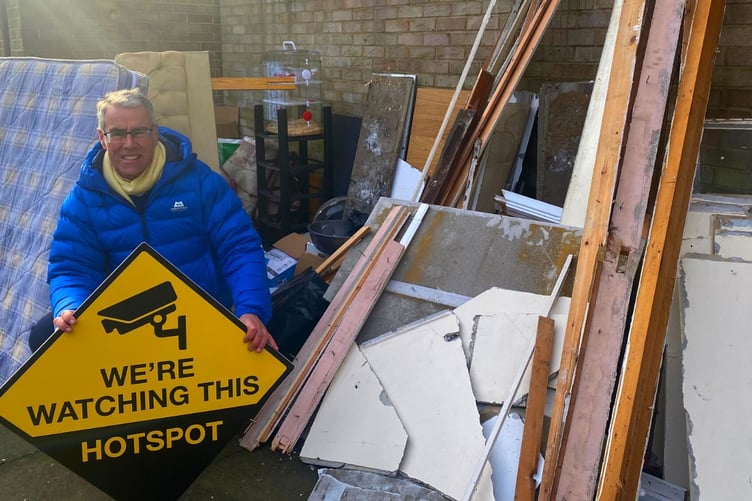THE media are filling up with information on the coronation of King Charles III, and what will be happening when and where.
We know the coronation is to take place on Saturday 6 May and it has been suggested that street parties be organised for the following day. The day after that, Monday 8 May, is now a bank holiday, designated The Big Help Out with the hope of creating a lasting legacy of volunteering. Local volunteering opportunities will be advertised in the weeks to come.
The Big Help Out was created by charities which include the Royal Voluntary Service, and the Scouts – a logical progression from their old Bob a Job Week.
One of the volunteering jobs suggested is litter-picking. Litter has been a bee in my bonnet ever since I was first able to wear a bonnet. I cannot see any reason we should have to pick up litter.
Littering has increased by 500% since the 1960s according to a recent report in The Daily Telegraph, and clearing it costs the UK economy £1billion a year.
Certainly there is involuntary littering, with wind blowing stuff around, and litter bins overflowing. You cannot expect a smoker to pocket a hot cigarette stub, runs the argument. Why not? My late mother, a smoker, had a small metal box, not unlike a pill box, which opened as an ashtray, complete with cigarette rest, and then shut until the stub could be deposited in a suitable place.
Cigarette filters can take up to 15 years to decay. There are such things as butt stub tidy boxes which may be purchased online to keep them in, so I’m informed.
We have all seen piles of revoltingly decaying stubs in lay-bys where motorists have decided to tidy the interior of their car. And to ignore any rubbish bins in the vicinity. Rubbish bins are worse than useless unless they are regularly emptied.
Plastic waste is long in decaying. A cash for litter scheme would pay people to post used bottles and cans into machines conveniently sited, probably in supermarket car parks. Payment would be made for the amount of plastic and cans posted into the bins.
This is just refreshing an old idea which, for some unfathomable reason, was shelved. I remember a permanently drunk, and happy, guy who haunted a busy port in the south of France. How could he afford the alcohol? Simply by picking up all the empty bottles he could find and taking them to a store for a cash payment.
There are plans to encourage litterers to attend awareness courses, similar to those available to motorists caught speeding, in return for reduced fines.
Policy Exchange, a leading UK think tank which called for the setting up of the scheme, also recommended tripling the maximum penalty to £450 and creating a league table to name and shame councils which fail to enforce the laws.
Councils should do much more to enforce littering fines. Such fines are being used as a cash cow by some councils, says another Daily Telegraph report.
Surely that’s a good thing? Not if the councils are relying on private “litter police”, some of which, it would seem, are demanding on-the-spot fines for a piece of orange peel or thread from a glove.
Fly-tipping has risen by 38% since 2010 as trivial fines fail to deter the polluters. The costs of removing it should be taken from the tipper – but very little seems to be done to identify the criminals. I thought councils were in their right to seize and destroy vehicles used in such tipping.
Perhaps, though, this may be about to change, at least in and around Woking.
As I typed this, a note from Woking Borough Council headlined “New mobile CCTV cameras to target illegal fly-tippers” dropped into my inbox.
“Watchful eyes, in the form of mobile CCTV cameras, will soon be overseeing the borough’s fly-tipping hotspots to help deter and identify illegal fly-tippers,” I am told.
“It is estimated that fly-tipping costs local taxpayers more than £30,000 a year to clear up and dispose of the dumped waste. The mobile cameras will be moved around areas of the borough which are blighted by incidents of fly-tipping.”
A timely initiative indeed.





Comments
This article has no comments yet. Be the first to leave a comment.